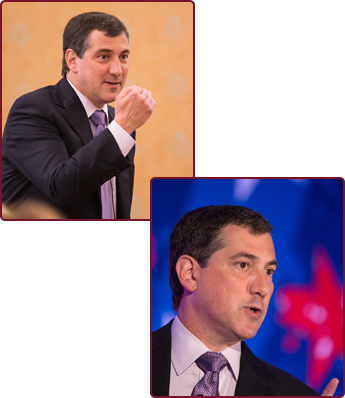Frequently Asked Questions
 |
Q. Do all hospitals have ethics committees?
A. All accredited facilities are required to have some mechanism in place for the discussion and resolution of ethical issues in patient care and organizational ethics issues. This requirement does not stipulate any particular format for an ethics committee, so the ethics programs at different hospitals will vary greatly. If you have an ethical issue while at an American hospital, however, there should be some way to initiate an ethics consultation procedure.
Q. How do I request an ethics consult?
A. While in a health care facility, the most appropriate way to raise an ethical issue is to discuss the matter with your attending physician. If you are uncomfortable talking to your doctor, you may also call the hospital chaplain. Additionally, many staff members of the facility should be able to tell you how to access the ethics committee for assistance. If you would like our assistance dealing with an ethical issue that you or a loved one is facing, please call our office at (434) 384-5322.
|
Q. Does Bioethical Services of Virginia, Inc. (BSV, Inc.) represent any particular ethical or religious perspective?
A. Absolutely not! Medical ethics do not depend upon any particular religious or ethical point of view. BSV, Inc. promotes a process-oriented approach to ethics that allows individuals and groups to better understand their own ethical concepts, to fit those concepts within a broader social perspective, and to reason from those concepts to a rational conclusion.
Q. Does BSV, Inc. work directly with the public or only through hospitals?
A. While most of our business involves contracts with health care organizations, we have also responded to individual requests for assistance in dealing with specific problems. BSV, Inc. helps in many ways, often simply by explaining the issues that people face in clear language and helping patients to carefully consider their alternatives. Remember that we are committed to maintaining confidentiality, so we can only review a patient's record or discuss the details of a case after we have been explicitly invited to do so by a patient or a patient's physician.
Q. What kind of training does a person need to be an ethicist?
A. Almost half of those who are engaged in medical ethics professionally are Ph.D. philosophers who have clinical training or experience. The other half is typically physicians who have additional training in ethics. The remaining ethicists are chaplains, lawyers, or other clinicians who have medical ethics training. Although there are no licensing requirements in this field, there are core competency recommendations that have been developed by the American Society of Bioethics and the Humanities.
Q. What is the most important thing that I can do to avoid ethical dilemmas for myself or my loved ones?
A. Communicate. The most important thing that every one of us can do is to communicate our values to our loved ones so there will be little doubt about what we value in life; thus avoiding ethical dilemmas. A wonderful tool for this type of discussion is an advance directive. It can include multiple parts, including a living will and the assignment of an agent to make decisions for you if you lose the capacity to do so yourself. Every competent adult in our society would benefit by completing an advance directive. I strongly encourage every adult to talk to his or her health care provider about completing an advance directive.